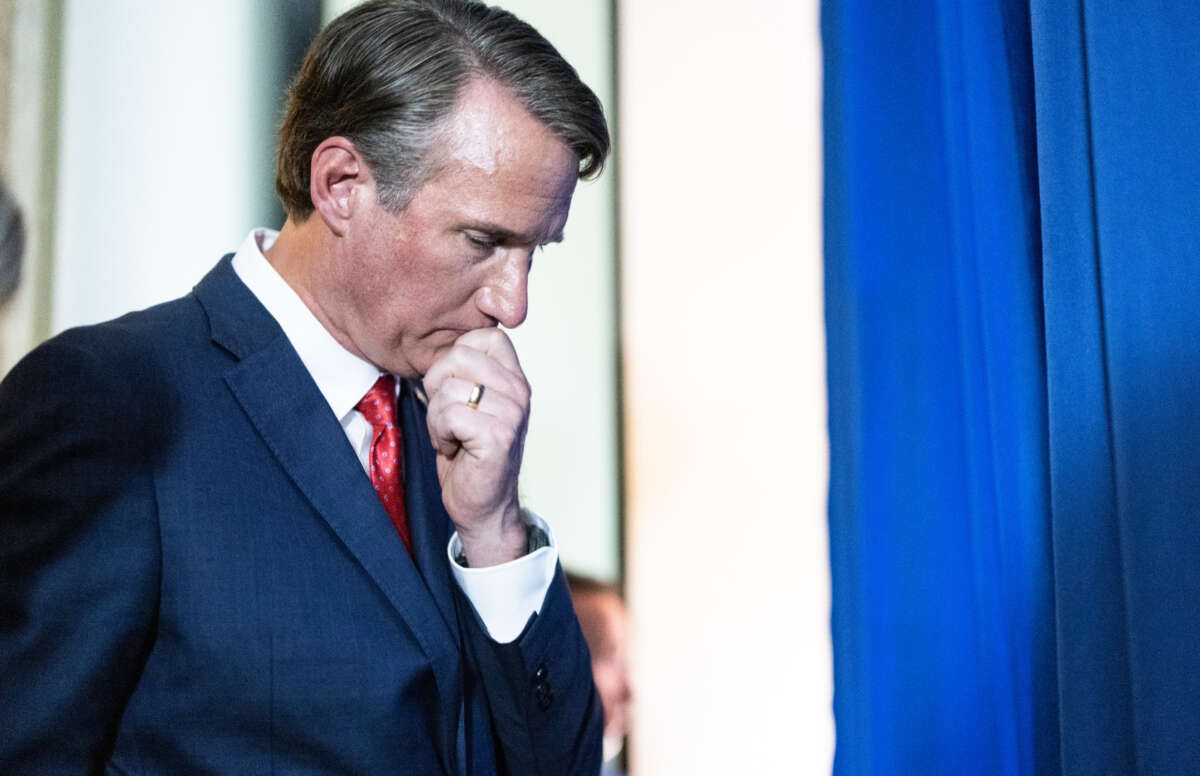Virginia state Senate Democrats in an education and health subcommittee defeated a series of anti-abortion measures on Thursday, thwarting Gov. Glenn Youngkin’s (R) efforts to shorten the time frame in which Virginia residents can obtain the procedure by several weeks.
Democrats were able to block several anti-abortion proposals largely as a result of winning a special election for a state Senate seat earlier this month, which solidified their majority in that chamber by a two-vote margin. State Sen. Aaron Rouse (D) narrowly defeated Republican Kevin Adams in part by campaigning on keeping abortion rights in the state intact following last year’s federal Supreme Court ruling overturning Roe v. Wade.
Democrats recognized that their victories on Thursday were aided by that election win and others like it during the 2022 midterms.
“As long as Senate Democrats have our majority, the brick wall will stand strong and these extreme bills will never pass,” Sen. L. Louise Lucas (D) said after the three bills were defeated.
Several anti-abortion measures are currently under consideration in the Republican-controlled House of Delegates, but unless there are monumental changes in the state Senate, those measures are also unlikely to pass.
The Youngkin-backed anti-abortion bill, which the governor had included as part of his state budget, would have banned all abortions after the 15th week of pregnancy save for pregnancies that were the result of rape or incest or that threatened the health of a pregnant person. Youngkin advertised the bill as a “compromise,” but as abortion rights advocates frequently note, 15-week abortion bans are dangerous, as issues with the fetus and other potential health complications for those who are pregnant generally aren’t known until the second trimester. The bill also would have amended current standards for what types of health issues could be considered, excluding consideration of the pregnant person’s emotional or psychological health.
Another provision batted down by Democrats would have banned all abortions in the third trimester. Such abortions are already forbidden by Virginia law — usually past week 26 of a pregnancy — unless a person’s health is at risk. The bill would have further entrenched that standard, making it harder to obtain life-saving abortions by requiring at least three separate physicians to sign off on an abortion at that stage of pregnancy.
A third bill, the most unlikely to have passed a full state Senate vote, would have banned abortion at every stage of pregnancy, only allowing the procedure in cases of rape or incest, or when necessary to save the life of the pregnant person.
Democratic lawmakers and abortion rights advocacy groups lauded the defeat of the three bills. Lucas, who serves on the subcommittee that blocked the legislation, shared on social media an image of her disposing of copies of the bills in her office’s trash receptacle.
“All of Glenn Youngkin’s bills to limit abortion rights come to my committee. I put them straight into my trash can,” Lucas wrote in her tweet.
In a statement celebrating the actions taken on Thursday, Jamie Lockhart, executive director of Planned Parenthood Advocates of Virginia, noted that the abortion bills would have endangered Virginia residents had they passed.
“All three of the dangerous anti-abortion proposals before this committee represented grave threats to Virginians’ health and rights, and we are thrilled to now celebrate their defeat,” Lockhart said.
Join us in defending the truth before it’s too late
The future of independent journalism is uncertain, and the consequences of losing it are too grave to ignore. To ensure Truthout remains safe, strong, and free, we need to raise $27,000 in the next 24 hours. Every dollar raised goes directly toward the costs of producing news you can trust.
Please give what you can — because by supporting us with a tax-deductible donation, you’re not just preserving a source of news, you’re helping to safeguard what’s left of our democracy.
